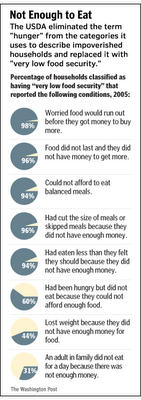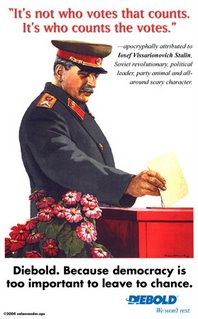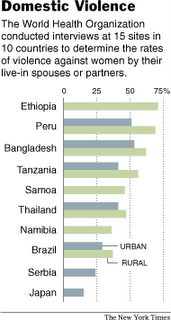New York City’s top welfare official offered an unusually candid assessment of shortcomings in social services yesterday, vividly describing offices where caseworkers are overwhelmed by paperwork, hindered by antiquated computers and not given adequate training.
Furthermore, the official, Verna Eggleston, acknowledged that the need for food and nutrition assistance is growing in the city — so much so that some of her own employees are receiving food from charities between paychecks.
Ms. Eggleston, commissioner of the Human Resources Administration, which has about 16,000 employees and an annual budget of $7 billion, made her remarks in testimony before Councilman Bill de Blasio of Brooklyn at a hearing to discuss hunger in the city.
The United States Department of Agriculture reported last week that the prevalence of “food insecurity” — a federal term for hunger — in New York State rose to an average of 10.4 percent in 2003-5 from 9.4 percent in 2000-2, though the level is still lower than the 11.9 percent reported in 1996-98.
About 1.1 million of the city’s 8.1 million residents receive food stamps, a federally subsidized benefit. Most observers believe that several hundred thousand more are eligible for the benefit but do not receive it — in part because of bureaucratic barriers, like a cumbersome application process.
Ms. Eggleston, acknowledging the criticisms, said that on Dec. 18, the agency would begin accepting food stamp applications over the Internet, in an experiment with two nonprofit groups, Food Change and the New York City Coalition Against Hunger.
Under the experiment, financed by an Agriculture Department grant, Food Change employees at several food pantries and other locations will take applications and submit information electronically to the city, obviating the need for a caseworker to manually enter the information into a state-run computer system.
Ms. Eggleston also said her staff would conduct an outreach campaign during the holiday season — involving bus and subway advertising and tens of thousands of copies of a new brochure — to encourage those eligible to apply for food stamps. City employees will also “visit high-volume food pantries and soup kitchens throughout the city” and help people fill out applications, she said.
Ms. Eggleston conceded that many food stamp recipients were barely scraping by, saying that at her neighborhood supermarket she recently overheard two older people talking about how their electronic benefits transfer cards — where the value of the food stamps is automatically uploaded each month — had run out well before the end of the month.
She added, “I do think there’s an increased demand, especially when I know that many of my staff in my own agency utilize food kitchens in between pay periods.”
She said the agency would soon revive a training academy to make sure that caseworkers were familiar with updated procedures. She recalled that one employee had disregarded a new policy even though a copy of it “was literally dangling above the worker’s head.”
She said she had been shocked at conditions in one office. “I was livid,” she said, describing “workers with applications in stacked cardboard boxes.” She added, “Even though it was a back-room operation, even though a customer didn’t go there, it didn’t matter because they lacked the tools to meet the commitments that this administration had made.”
Ms. Eggleston also said, “I’ve met workers who haven’t had a computer change in 20 years, where on the other extreme, I’ve met workers who had a computer change every 11 months.”
The agency’s chief of staff, David A. Hansell, testified that the city would petition Governor-elect Eliot Spitzer, after he takes office in January, and Congress, which is to take up reauthorization of the food stamp program next year, to grant more leeway in how the program is run.







